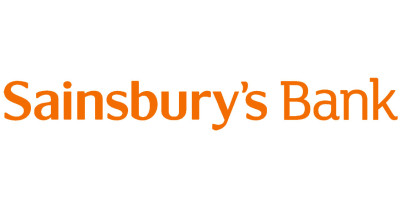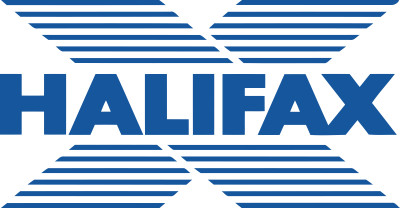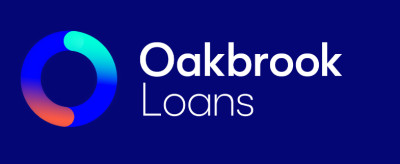Auto Loans for a used car
We've compiled a list of the top auto loan rates to assist you in your quest. Our evaluation involved assessing 25 prominent auto lenders on various criteria, including APRs, available loan types, loan terms, prerequisites for vehicles and borrowers, as well as other pertinent factors. Additionally, we conducted a comprehensive survey involving 1,016 auto loan borrowers, gathering valuable insights on lender satisfaction and the overall loan application process.
Best Auto Loans for a used car

LightStream provides an attractive option for personal loans, especially if you have a strong credit history. With competitive interest rates and a lack of fees, it's a borrower-friendly choice.
Pros and cons

myAutoloan.com, established in 2003, operates as a direct lending marketplace that serves as an intermediary, gathering loan offers from up to four lenders on behalf of loan applicants.
Pros and cons

PenFed's car buying service enables applicants to find a car online, request member pricing from a dealer, apply for financing online, receive approval, and then visit the dealership.
Pros and cons

HSBC offers Personal, Premier, Car, Home Improvement, and Debt Consolidation loans with competitive rates and exclusive Premier benefits.
Pros and cons

Sainsbury's Bank, a subsidiary of the esteemed UK supermarket, offers a diverse range of financial services, including loans, credit cards, insurance, and savings accounts, with a focus on customer convenience and competitive solutions.
Pros and cons

Halifax's personal loans are tailored for various purposes, such as major purchases or consolidating debts, without the requirement of collateral.
Pros and cons

Zopa Bank, renowned for its tech-savvy approach combined with financial acumen, is committed to offering simple, transparent, and customer-focused financial products.
Pros and cons

Oakbrook Loans, a dynamic and FCA-regulated institution in Nottingham, provides versatile loans for homes, debt, weddings, and cars.
Pros and cons

TSB Bank personal loans offer flexible borrowing from £300 to £50,000, competitive APRs, repayment holidays, and options for diverse financial needs.
Pros and cons

Novuna offers a range of loans including car, home, debt consolidation, and leisure, all with flexible terms and competitive rates.
Pros and cons
It's important to be aware of several key factors:
- Credit Score Impact: Typically, car loans come with fixed interest rates and loan terms, but these terms can sometimes be negotiable depending on the lender. Your credit score plays a pivotal role in determining your loan rate. A higher credit score often results in a lower annual percentage rate (APR). Additionally, a strong credit score can open doors to larger loan amounts and more favorable repayment terms.
- Loan Terms: The loan term you select can significantly impact your overall loan cost and monthly payments. For instance, if you qualify for a 2.5% APR loan, opting for a shorter loan term will reduce your interest payments over time but result in higher monthly installments. Conversely, choosing a longer loan term will lower your monthly payments but increase the total interest paid. To make the right choice, consider your budget and financial objectives.
- Lender Preapproval: It's advisable to inquire whether potential lenders offer a preapproval process. Preapproval allows you to gauge the interest rates you qualify for without triggering a hard credit inquiry, which could slightly affect your credit score. Moreover, it empowers you to explore loan options upfront without committing to a specific lender.
FAQ
What is the longest loan term for a used car?
- Lower Monthly Payments: Longer loan terms spread the cost of the car over more months, reducing your monthly payment amount.
- Easier Budgeting: Lower monthly payments can make it easier to fit the car loan into your monthly budget.
- Higher Total Interest: With a longer loan term, you'll pay more in interest over the life of the loan, potentially significantly increasing the total cost of the car.
- Negative Equity: Longer loan terms can result in owing more on the car than it's worth for a more extended period, known as negative equity. This can be problematic if you want to sell or trade in the vehicle before the loan is paid off.
- Risk of Overextending: Stretching the loan term too long may lead to financial strain and difficulties meeting other financial goals.
Is 7% interest on a car loan good?
Excellent (750 - 850): 2.96 percent for new, 3.68 percent for used. Good (700 - 749): 4.03 percent for new, 5.53 percent for used. Fair (650 - 699): 6.75 percent for new, 10.33 percent for used. Poor (450 - 649): 12.84 percent for new, 20.43 percent for used.
Can I get approved for an auto loan before I pick out my car?
Yes. Your auto loan preapproval allows you to know exactly how much car you are preapproved for before you shop. Remember - while you negotiate the best price with either a dealer or seller, don’t reveal to the seller the maximum amount of finance you are preapproved for.
What credit score do I need to finance a used car?
For individuals with poor credit, the possibility of securing a car loan still exists, as different lenders have varying credit score requirements. However, caution is essential in this arena. Specialized lenders catering to low-credit or no-credit borrowers might provide options but can sometimes offer high-risk or even predatory loans.
It's crucial to approach bad-credit car loans with vigilance. While they may present an opportunity for those with less-than-ideal credit, borrowers should carefully assess the terms, interest rates, and overall conditions of these loans. Some lenders may exploit the financial vulnerability of individuals with poor credit, leading to unfavorable terms and potential financial strain.
As you explore bad-credit car loan options, prioritize transparency and thorough understanding of the loan terms. Diligent research and, if possible, consultation with financial experts can aid in making informed decisions, ensuring that the chosen loan serves as a viable and manageable financial solution.
Is it better to finance a used car through the dealer or a bank?
For individuals with an excellent credit history, the prospect of qualifying for a lower interest rate or a 0% APR incentive directly from a dealership exists. However, for the majority of buyers, a bank loan often proves to be the more cost-effective option. The key to finding the best solution lies in applying with multiple lenders and thoroughly comparing the available options.
While dealership financing may offer attractive incentives, such as low or zero interest rates, these deals are typically reserved for those with impeccable credit. To determine the most affordable financing option, prospective car buyers should cast a wide net and explore offers from various banks, credit unions, and financial institutions.
Here are essential steps to guide the decision-making process:
- Check Your Credit Score: Understand your creditworthiness before applying for loans. A higher credit score can open doors to more favorable terms.
- Explore Dealer Financing: Investigate the financing options offered by the dealership, paying close attention to any special promotions or incentives.
- Compare Bank Loan Offers: Apply for loans from different banks and credit unions to assess interest rates, terms, and overall costs.
- Consider the Total Package: Evaluate the comprehensive financing package, including interest rates, loan duration, and any additional fees or charges.
- Negotiate Terms: If negotiating with the dealership, leverage pre-approved bank offers to potentially secure more favorable terms.
- Make an Informed Decision: Armed with comprehensive information, choose the financing option that aligns with your financial goals and preferences.
By taking a proactive and informed approach, car buyers can navigate the financing landscape with confidence, securing terms that best suit their financial situation
Are used car loans harder to get?
Acquiring a used car loan involves certain considerations and potential challenges, as lenders often impose restrictions based on factors like mileage, age, and the nature of the purchase. However, securing approval for a used car loan can be more straightforward when compared to loans for new cars, especially if the loan amount is relatively small.